
Find A Professional
More Items From Ergsy search
-
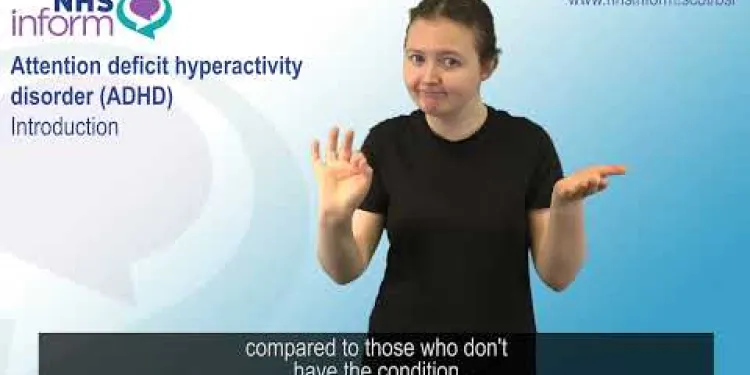
Attention deficit hyperactivity disorder (ADHD) - Introduction
Relevance: 100%
-

Can lifestyle changes help manage ADHD?
Relevance: 90%
-
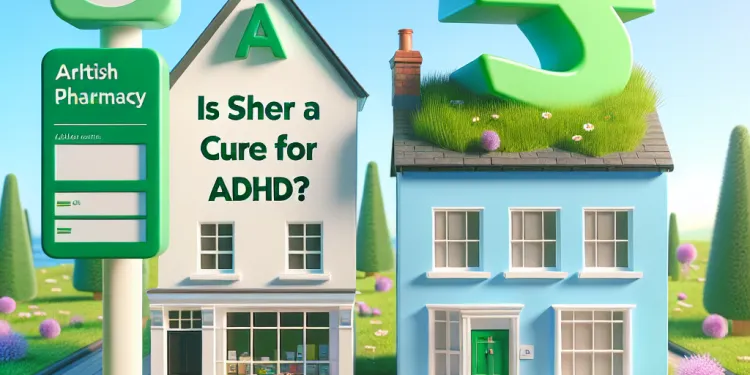
Is there a cure for ADHD?
Relevance: 70%
-

What are common treatments for ADHD?
Relevance: 65%
-

What is ADHD?
Relevance: 63%
-
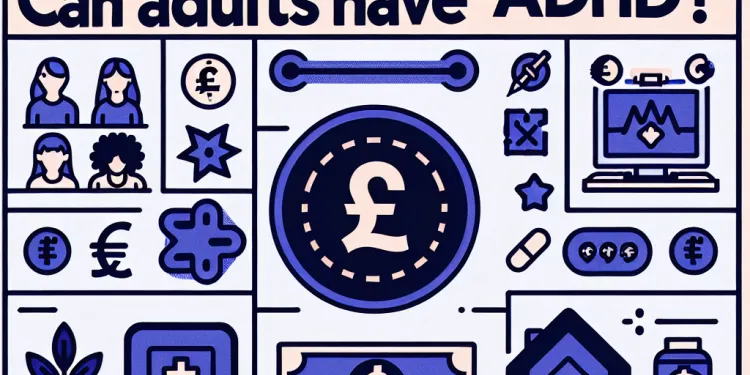
Can adults have ADHD?
Relevance: 63%
-
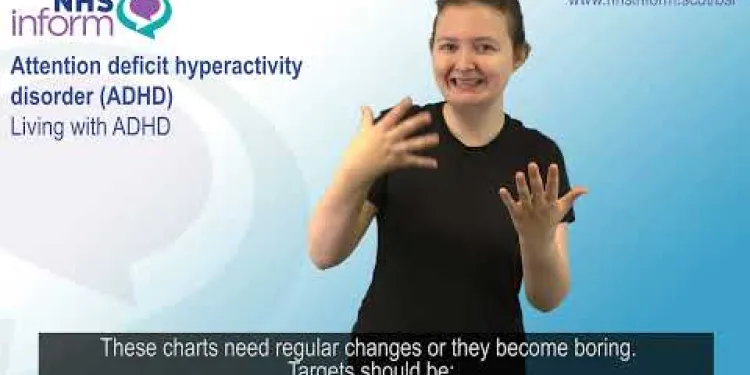
Attention deficit hyperactivity disorder (ADHD) - Living with ADHD
Relevance: 63%
-
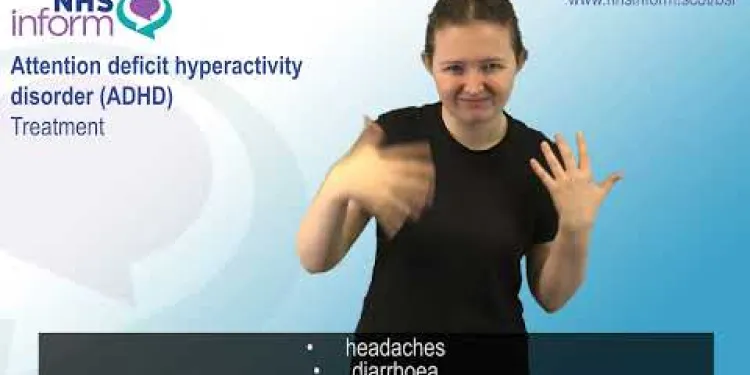
Attention deficit hyperactivity disorder (ADHD) - Treatment
Relevance: 63%
-

Can ADHD be inherited?
Relevance: 63%
-

Can therapy help individuals with ADHD?
Relevance: 62%
-

What is a cryptocurrency exchange?
Relevance: 62%
-
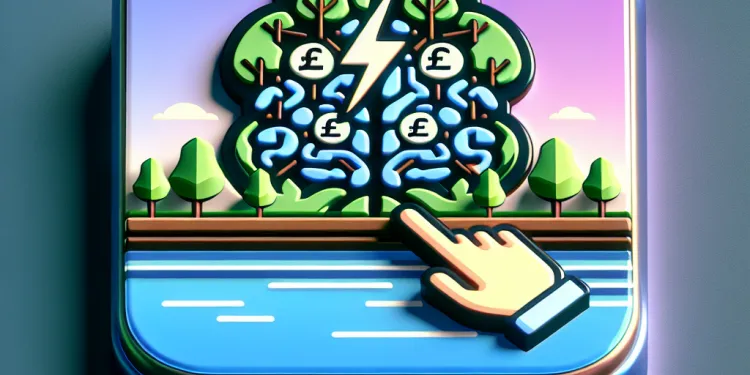
What role does the environment play in ADHD?
Relevance: 61%
-
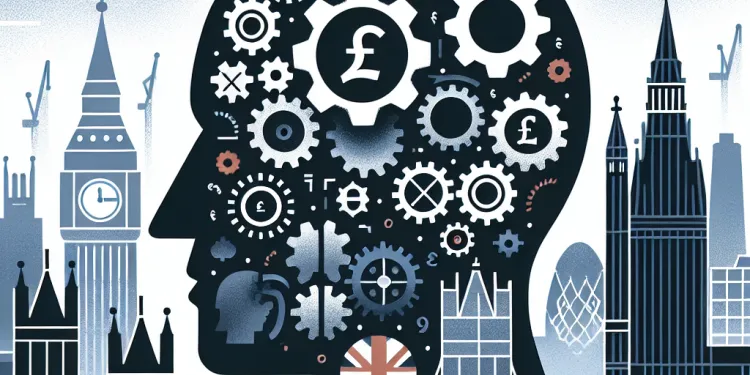
How does ADHD affect executive function?
Relevance: 59%
-

What causes ADHD?
Relevance: 58%
-

Are there any risks associated with untreated ADHD?
Relevance: 56%
-
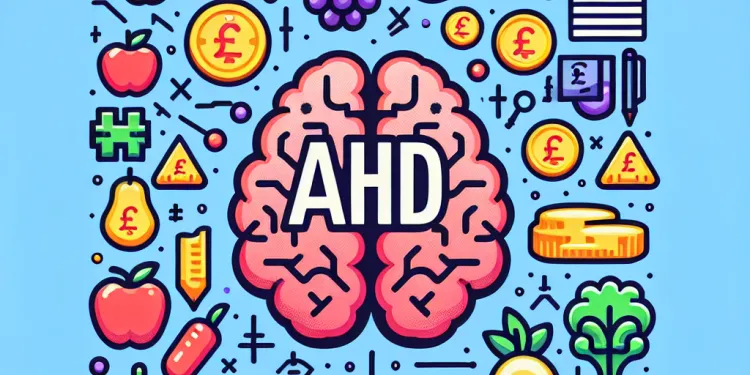
Can diet affect ADHD symptoms?
Relevance: 55%
-

When will the new HMRC tax changes be officially confirmed?
Relevance: 55%
-

How often do you need to change a stoma bag?
Relevance: 53%
-
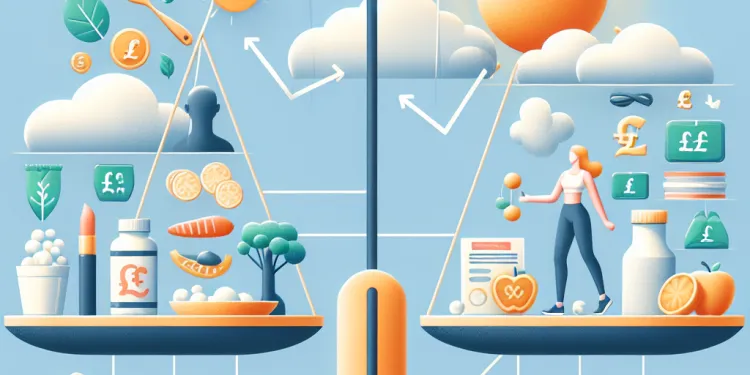
What role do lifestyle changes play in managing psoriasis?
Relevance: 52%
-

Is ADHD more common in boys or girls?
Relevance: 51%
-

Are there different types of ADHD?
Relevance: 49%
-
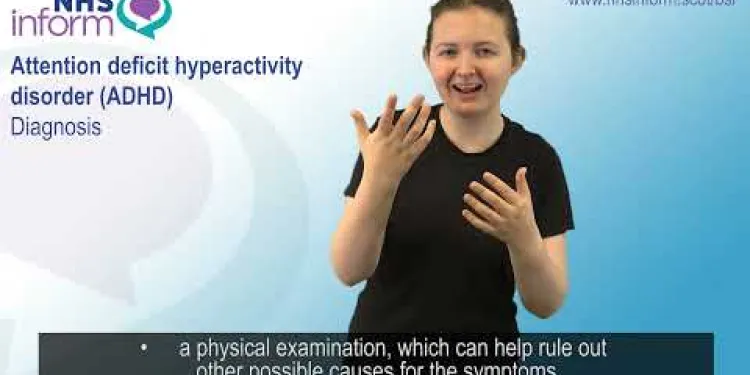
Attention deficit hyperactivity disorder (ADHD) - Diagnosis
Relevance: 49%
-

Can I change my DVSA Theory Test date?
Relevance: 48%
-

What should business owners expect from income tax changes in 2026?
Relevance: 46%
-
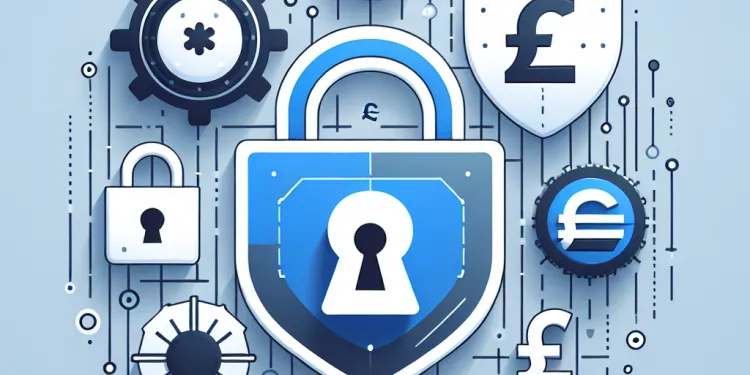
What role do password managers play in data breach prevention?
Relevance: 46%
-

Do lifestyle changes need to accompany Ozempic for weight loss?
Relevance: 44%
-
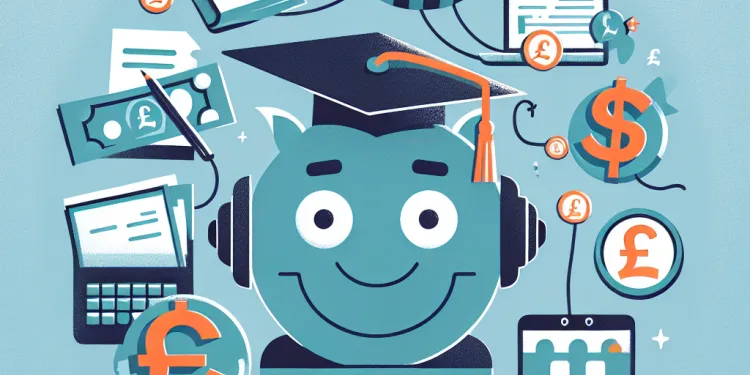
Are there implications for student loan repayments with 2026 changes?
Relevance: 43%
-

How can I find detailed information about these changes once announced?
Relevance: 43%
-
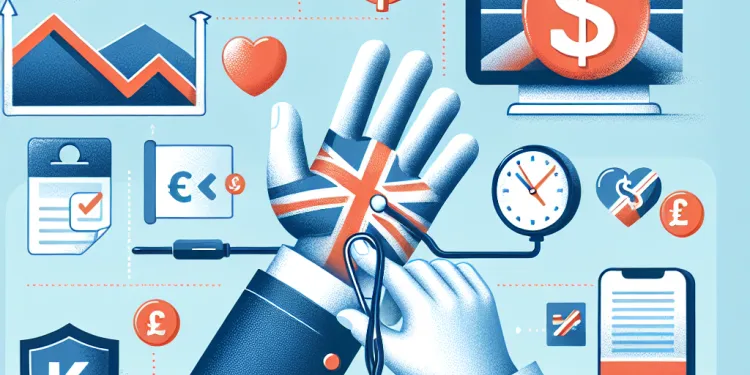
Can lifestyle changes help manage Carpal Tunnel Syndrome?
Relevance: 43%
-

What are the main symptoms of ADHD?
Relevance: 43%
-

What should I do if I notice changes during self-testing?
Relevance: 42%
-

Improving outcomes for people with diabetes
Relevance: 42%
-
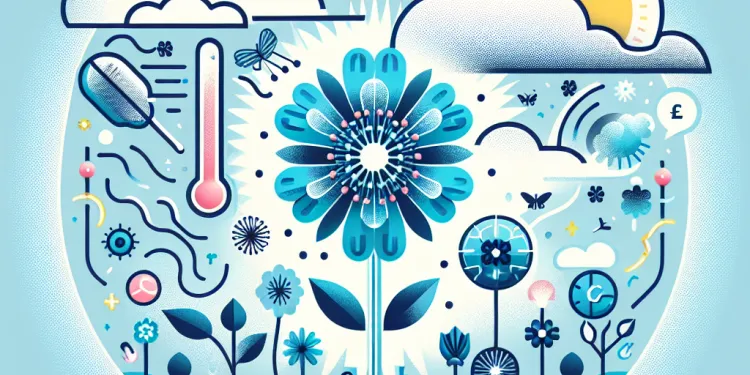
How does climate change affect pollen levels?
Relevance: 41%
-

How soon should I prepare for the 2026 tax changes?
Relevance: 41%
-
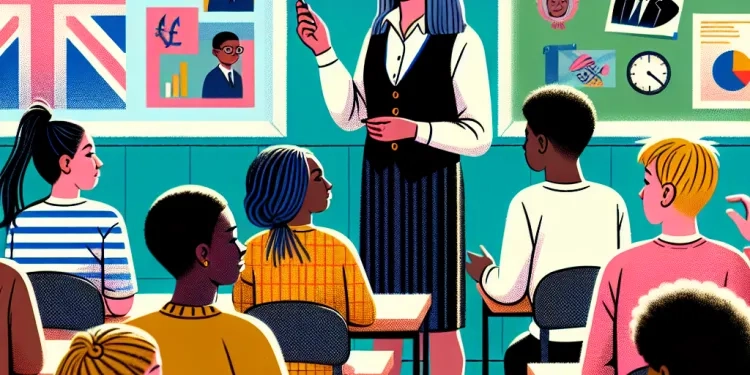
How can teachers support students with ADHD?
Relevance: 41%
-
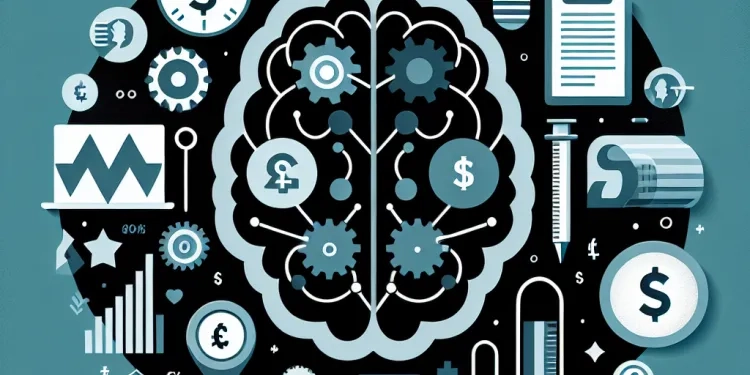
How is ADHD diagnosed?
Relevance: 41%
-

How might these changes affect taxpayers on PAYE?
Relevance: 39%
-
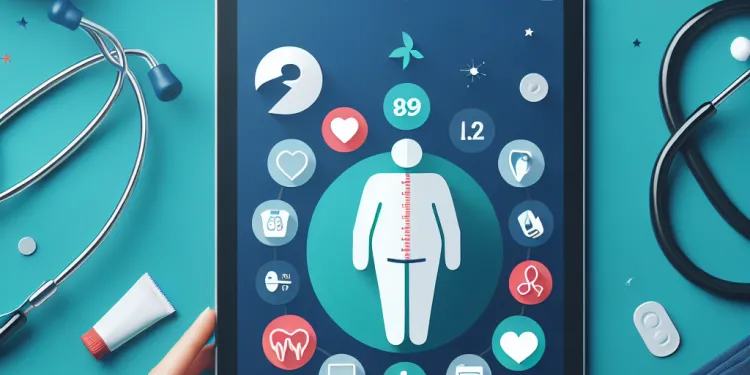
What treatments are available for obesity?
Relevance: 39%
-

How does climate change affect water infrastructure maintenance?
Relevance: 39%
-

Are there further changes expected after 2026?
Relevance: 38%
Understanding ADHD
Attention Deficit Hyperactivity Disorder (ADHD) is a neurodevelopmental disorder that affects both children and adults. It is characterized by symptoms such as inattention, hyperactivity, and impulsiveness. While medication is often prescribed as a primary treatment, many individuals and caregivers seek additional methods to help manage symptoms. Lifestyle changes can play a crucial role in this holistic approach to ADHD management.
The Role of Diet in ADHD Management
Dietary changes are among the most frequently discussed lifestyle modifications for managing ADHD. Some studies suggest that certain foods may exacerbate symptoms, while others can be beneficial. A balanced diet rich in fruits, vegetables, whole grains, and lean proteins can support overall brain health. In particular, omega-3 fatty acids, found in fish such as salmon and mackerel, have been associated with improved attention and cognitive function. It is also recommended to minimize the intake of processed foods, refined sugars, and artificial additives, which may worsen symptoms in some individuals.
Physical Activity and ADHD
Regular physical activity has been shown to improve concentration, reduce impulsivity, and enhance mood in people with ADHD. Exercise increases the levels of neurotransmitters such as dopamine, norepinephrine, and serotonin, which play a key role in attention and executive functioning. Activities such as swimming, cycling, and martial arts can be particularly beneficial, as they involve both physical exertion and mental focus.
The Importance of Sleep
Sleep is another vital component in managing ADHD symptoms. Many individuals with ADHD struggle with sleep issues, which can, in turn, exacerbate symptoms. Establishing a consistent sleep schedule, reducing screen time before bed, and creating a restful sleep environment can contribute significantly to better sleep quality. Ensuring adequate rest can improve attention, mood, and overall functioning during the day.
Mindfulness and Stress Management
Mindfulness practices, such as meditation and yoga, can help individuals with ADHD develop better self-control and emotional regulation. These practices encourage a focus on the present moment, which can reduce stress and impulsivity. Additionally, stress management techniques can help mitigate the negative impact of ADHD symptoms by promoting relaxation and reducing anxiety.
Supportive Environment
Creating a supportive environment at home, school, or work is crucial for individuals with ADHD. This can involve using organizational tools, setting clear routines, and providing structure to daily activities. Encouragement from family, teachers, and employers can also boost self-esteem and motivation, enabling individuals with ADHD to thrive.
Conclusion
While lifestyle changes are not a substitute for professional treatment, they can be an effective complement to medication and therapy in managing ADHD. By implementing dietary modifications, regular exercise, healthy sleep habits, mindfulness practices, and creating supportive environments, individuals with ADHD may achieve improved symptom management and a better quality of life.
Understanding ADHD
ADHD stands for Attention Deficit Hyperactivity Disorder. It affects both kids and adults. People with ADHD might find it hard to pay attention, sit still, or think before they act. Medicine is often used to help, but other things can help too. Changing some everyday habits can really help with ADHD.
The Role of Diet in ADHD Management
What we eat can make a difference for people with ADHD. Some foods might make ADHD worse, while others can help. Eating a balanced diet with fruits, veggies, whole grains, and lean meats is good for the brain. Fish like salmon have omega-3, which helps with focus and thinking. Try to eat less junk food, sugary foods, and foods with lots of artificial stuff, as they might make ADHD worse.
Physical Activity and ADHD
Exercise is great for people with ADHD. Moving our bodies helps us focus, stay calm, and feel happy. Exercise increases certain chemicals in the brain that help with focus. Sports like swimming, biking, and martial arts are good because they make our bodies and minds work together.
The Importance of Sleep
Getting enough sleep is very important for people with ADHD. Sometimes, people with ADHD have trouble sleeping. If we don’t sleep well, ADHD can feel worse. Going to bed at the same time each night, staying away from screens before bed, and making the bedroom a calm place can help. Good sleep helps us focus and feel better during the day.
Mindfulness and Stress Management
Things like meditation and yoga can help people with ADHD stay calm and in control. These activities help us focus on what is happening right now, which can reduce stress and help with impulsive behavior. Learning how to relax and handle stress can make ADHD symptoms less bothersome.
Supportive Environment
Having a supportive place at home, school, or work is very helpful for people with ADHD. This means using tools to stay organized, having clear routines, and having structure in daily life. Support from family, teachers, and coworkers can also help people with ADHD feel confident and do well.
Conclusion
Lifestyle changes can't replace medical treatment, but they can help a lot alongside it. By eating better, exercising, getting good sleep, practicing mindfulness, and having supportive environments, people with ADHD can manage symptoms better and enjoy life more.
Frequently Asked Questions
Can lifestyle changes help manage ADHD?
Yes, lifestyle changes can help manage ADHD symptoms by providing structure and promoting better mental health.
How does exercise affect ADHD symptoms?
Regular physical activity can improve focus, reduce impulsivity, and alleviate stress in individuals with ADHD.
Can dietary changes improve ADHD symptoms?
A balanced diet rich in whole grains, fruits, vegetables, and omega-3 fatty acids may support brain health and help manage ADHD symptoms.
Are there specific foods to avoid for ADHD management?
Some individuals find that reducing sugar, caffeine, and artificial additives can help in managing their ADHD symptoms.
How does sleep impact ADHD?
Adequate sleep is crucial for managing ADHD as it can enhance focus and reduce irritability and hyperactivity.
What role does routine play in managing ADHD?
Establishing a consistent routine can help individuals with ADHD maintain organization and reduce anxiety.
Can mindfulness and meditation help with ADHD?
Mindfulness and meditation practices can improve concentration and reduce stress levels in people with ADHD.
How does screen time affect ADHD symptoms?
Excessive screen time can exacerbate ADHD symptoms, so managing and setting limits can be beneficial.
Can proper hydration influence ADHD management?
Staying well-hydrated is important for brain function and can support better management of ADHD symptoms.
Is social interaction important for managing ADHD?
Positive social interactions can enhance mood and provide support, helping individuals manage ADHD more effectively.
How does stress management relate to ADHD?
Effective stress management can lead to better focus and reduce the exacerbation of ADHD symptoms.
Can goal setting and organization be beneficial for ADHD?
Setting clear goals and maintaining organizational systems can provide structure and clarity, aiding in ADHD management.
What role does self-care play in managing ADHD?
Engaging in regular self-care activities can improve overall well-being and help manage ADHD symptoms.
Are there natural supplements that can help with ADHD?
Some studies suggest that supplements like omega-3 fatty acids and zinc might help, but it's important to consult with a healthcare provider.
Can yoga or tai chi be beneficial for ADHD?
Practices like yoga and tai chi can enhance mindfulness, reduce anxiety, and support overall ADHD management.
How can planning and time management aid those with ADHD?
Developing strong planning and time management skills can help individuals with ADHD prioritize tasks and manage their time effectively.
Does removing allergens from the diet help ADHD?
For some individuals, removing common allergens like gluten or dairy can lead to improvements in focus and behavior, but results vary.
How important is family support in managing ADHD?
Family support can provide understanding and encouragement, greatly aiding in the effective management of ADHD symptoms.
Can professional therapy complement lifestyle changes in managing ADHD?
Yes, therapy such as cognitive-behavioral therapy can complement lifestyle changes by providing strategies to manage symptoms.
What role does educational support play in ADHD management?
Accessing educational support can help individuals with ADHD develop coping strategies and succeed academically.
Can changing how you live help with ADHD?
Yes, changing how you live can help with ADHD. It can give you a routine and make you feel happier and healthier.
Here are some tips:
- Make a Schedule: Plan your day so you know what to do and when. This helps you stay on track.
- Eat Healthy Food: Eating good food can make you feel better and give you energy.
- Get Enough Sleep: Sleeping well helps your brain work better.
- Exercise: Moving your body can help you feel calm and focused.
- Take Breaks: Short breaks during the day can help you stay focused.
- Ask for Help: Find someone you trust to talk to when you need support.
How does exercise help people with ADHD?
Exercise can help people who have ADHD. It can make their symptoms better.
Moving your body can help you feel calmer. It can help you focus better and feel happier.
Doing exercises like running, walking, or even dancing can be good.
If you have ADHD, try to move your body every day. You can also ask someone for help if you need it.
Tools like reminders or apps can help you remember to exercise. You can also exercise with a friend for fun.
Doing exercise often can help people with ADHD. It can help them pay attention better, feel less jumpy, and feel less worried.
Can changing what you eat help with ADHD?
Eating healthy foods is good for your brain and can help with ADHD.
Try to eat:
- Whole grains like brown bread and oats.
- Fruits like apples and bananas.
- Vegetables like carrots and broccoli.
- Foods with omega-3 like fish.
Which foods should I not eat if I have ADHD?
Some foods might make ADHD worse. It's good to know which ones to avoid. Here are some tips:
- Avoid sugary drinks and snacks. Try fruit or water instead.
- Stay away from food colorings and additives. Check food labels for these.
- Limit junk food, like chips and fast food. These can make focus harder.
If you need more help, ask a grown-up or a doctor. They can give advice on healthy eating.
Some people with ADHD feel better when they eat less sugar, caffeine, and foods with fake ingredients.
How does sleep affect ADHD?
Sleep is very important for everyone. For people with ADHD, good sleep helps a lot.
When you sleep well, you can focus better, feel happier, and have more energy. If you don’t sleep enough, it can be harder to concentrate and you might feel grumpy.
Here are some tips to sleep better:
- Go to bed at the same time every night.
- Avoid screens like phones or tablets before bed.
- Have a relaxing bedtime routine, like reading a book.
If you have trouble sleeping, you can talk to a grown-up or a doctor for help.
Getting enough sleep is very important if you have ADHD. Sleep helps you pay attention better and stops you from feeling grumpy and too active.
How can a routine help with ADHD?
Having a regular plan for the day can help people with ADHD. It means doing things at the same time every day. This helps to remember tasks better and keep focused.
Here are some ways to make a routine:
- Write down things you need to do each day on a list.
- Use a calendar or planner to remember important dates.
- Set alarms or reminders on a phone to help stay on track.
- Make sure to have breaks and fun times in the day.
These tips can help make life a little easier and more organized.
Having a regular routine can help people with ADHD stay organized and feel less worried.
Can mindfulness and meditation help with ADHD?
Can being calm and thinking deeply help kids with ADHD?
People with ADHD find it hard to focus and sit still. Mindfulness is a way to help you feel calm and pay attention. Meditation is when you sit quietly and think. These can help you feel better.
To try mindfulness, sit still, close your eyes, and breathe slowly. Think about your breathing.
To meditate, sit in a quiet place, close your eyes, and listen to soft music or focus on a single thought.
It's a good idea to ask for help from a teacher or a parent if you want to try these techniques.
Taking time to be calm and focus, like through mindfulness and meditation, can help you pay attention better. It can also help you feel less worried if you have ADHD.
How Does Screen Time Affect ADHD?
Too much screen time can make ADHD symptoms worse. This means you might have more trouble paying attention or sitting still.
If you have ADHD, try to take breaks from screens. You can set a timer to help remind you when to take a break.
Ask a grown-up to help you make a plan. Spend time doing fun things away from screens, like playing outside or reading a book.
Use tools like timers, planners, or checklists to organize your day and make it easier to focus.
Too much time on screens, like phones or tablets, can make ADHD symptoms worse. It's a good idea to use screens less and take breaks.
Can drinking enough water help with ADHD?
Drinking enough water helps your brain work well. It can also help you manage ADHD symptoms better.
Is spending time with friends and family important for ADHD?
It can be really helpful to spend time with others when you have ADHD. Talking and playing with friends or family can help you feel better.
Here are some things that might help:
- Join a club or group where you can have fun with others.
- Talk with a friend if you're feeling upset or worried.
- Play games that let you work together with other people.
Remember, it's good to ask for help and talk to people you trust.
Spending time with friends and family can make you feel good. It helps people with ADHD deal with things better.
How are stress and ADHD connected?
Good ways to handle stress can help you focus better. It can also help stop ADHD symptoms from getting worse.
Can setting goals and being organized help people with ADHD?
Yes, setting goals and being organized can help people with ADHD. Here is how:
- Setting Goals: Make simple and clear goals.
- Making a Plan: Write down steps to reach your goals.
- Using Tools: Use things like calendars and timers to stay on track.
- Take Breaks: Remember to take short breaks to rest.
If you or someone you know has ADHD, these tips can help you stay focused and do things easier.
Having clear goals and being organized can help people with ADHD.
How does taking care of yourself help if you have ADHD?
Looking after yourself is very important if you have ADHD.
Here are some ways it helps:
- It can make you feel calmer.
- It helps you focus better.
- It makes it easier to handle stress.
Some things that might help are:
- Getting enough sleep.
- Eating healthy foods.
- Exercising regularly.
- Taking breaks when you need them.
It is also good to talk to someone you trust if you find things hard.
Doing things to take care of yourself can help you feel better and make ADHD symptoms easier to handle.
Can natural supplements help with ADHD?
Some people ask if there are natural products that can help with ADHD. ADHD means Attention Deficit Hyperactivity Disorder. It's when someone finds it hard to pay attention or sit still.
Natural Helpers:
- Fish Oil: Some people say fish oil helps with focus.
- Zinc: This might help some kids with ADHD.
- Iron: Low iron can make it hard to focus. A doctor can check your iron levels.
It's important to talk to a doctor before trying any new supplements. A doctor can help you find out what's right for you.
Helpful Tips:
- Make time for lots of play and exercise.
- Try to get enough sleep each night.
- Ask for help with schoolwork when needed.
Some studies say that omega-3 and zinc can be good for you. It is important to talk to a doctor first before taking them.
Can yoga or tai chi help people with ADHD?
Yoga and tai chi are exercises that use slow movements and deep breaths.
They can help people feel calm and focused.
For someone with ADHD, yoga or tai chi might make it easier to pay attention and feel relaxed.
Trying these exercises with a friend or in a class can be fun and supportive.
Doing activities like yoga and tai chi can help you feel calm and relaxed. They can also make it easier to focus and help with ADHD.
How can planning and using time help people with ADHD?
People with ADHD sometimes find it hard to focus and get things done. Here are some ways planning and using time can help:
- Make a To-Do List: Write down what you need to do. This helps you remember your tasks.
- Use a Timer: Set a timer to know how long to work on something. This helps you stay on track.
- Take Breaks: Resting can help you focus better when you start again. Try using a timer to remind you to take breaks.
- Plan Your Day: Decide when to do each task. A simple plan helps you know what to do next.
- Get Help: Ask an adult or friend for help if you need it. They can help you stick to your plan.
Learning how to plan and use your time well can help people with ADHD know what to do first . It also helps them use their time better.
Can taking out allergy foods help with ADHD?
For some people, staying away from foods like gluten or milk can help them pay attention better and behave well. But it doesn't work for everyone.
Why is family help important for people with ADHD?
Family help is really important for people with ADHD. It makes things easier and better for them.
Here is why family help is good:
- Family can give love and care.
- They can help with remembering things.
- Family can support with homework or tasks.
- They can help keep routines.
- Family can go to the doctor with you.
Use things like:
- Reminders: like notes or alarms.
- Neat charts: to show what to do next.
- Quiet spaces: to help focus on tasks.
Family can help by understanding and cheering you on. This can make it easier to handle ADHD problems.
Can therapy help with ADHD along with lifestyle changes?
Therapy is talking to someone who can help you feel better. For people with ADHD, therapy can be a great help.
Making changes in your life, like getting more sleep, eating healthy, and exercising, can also help with ADHD.
Doing both therapy and making life changes together can make a big difference.
Here are some tips that can help you:
- Use simple planners or apps to keep track of things.
- Ask a friend or family member to help you stay on track.
- Practice deep breathing to relax.
Yes, therapy can help when you are making changes to your life. It gives you ways to handle problems better.
How can learning help kids with ADHD?
Getting help at school can really help people with ADHD. It can teach them ways to do well in school and handle challenges better.
Useful Links
- Ergsy carfully checks the information in the videos we provide here.
- Videos shown by Youtube after a video has completed, have NOT been reviewed by ERGSY.
- To view, click the arrow in centre of video.
- Most of the videos you find here will have subtitles and/or closed captions available.
- You may need to turn these on, and choose your preferred language.
- Go to the video you'd like to watch.
- If closed captions (CC) are available, settings will be visible on the bottom right of the video player.
- To turn on Captions, click settings .
- To turn off Captions, click settings again.
More Items From Ergsy search
-

Attention deficit hyperactivity disorder (ADHD) - Introduction
Relevance: 100%
-

Can lifestyle changes help manage ADHD?
Relevance: 90%
-

Is there a cure for ADHD?
Relevance: 70%
-

What are common treatments for ADHD?
Relevance: 65%
-

What is ADHD?
Relevance: 63%
-

Can adults have ADHD?
Relevance: 63%
-

Attention deficit hyperactivity disorder (ADHD) - Living with ADHD
Relevance: 63%
-

Attention deficit hyperactivity disorder (ADHD) - Treatment
Relevance: 63%
-

Can ADHD be inherited?
Relevance: 63%
-

Can therapy help individuals with ADHD?
Relevance: 62%
-

What is a cryptocurrency exchange?
Relevance: 62%
-

What role does the environment play in ADHD?
Relevance: 61%
-

How does ADHD affect executive function?
Relevance: 59%
-

What causes ADHD?
Relevance: 58%
-

Are there any risks associated with untreated ADHD?
Relevance: 56%
-

Can diet affect ADHD symptoms?
Relevance: 55%
-

When will the new HMRC tax changes be officially confirmed?
Relevance: 55%
-

How often do you need to change a stoma bag?
Relevance: 53%
-

What role do lifestyle changes play in managing psoriasis?
Relevance: 52%
-

Is ADHD more common in boys or girls?
Relevance: 51%
-

Are there different types of ADHD?
Relevance: 49%
-

Attention deficit hyperactivity disorder (ADHD) - Diagnosis
Relevance: 49%
-

Can I change my DVSA Theory Test date?
Relevance: 48%
-

What should business owners expect from income tax changes in 2026?
Relevance: 46%
-

What role do password managers play in data breach prevention?
Relevance: 46%
-

Do lifestyle changes need to accompany Ozempic for weight loss?
Relevance: 44%
-

Are there implications for student loan repayments with 2026 changes?
Relevance: 43%
-

How can I find detailed information about these changes once announced?
Relevance: 43%
-

Can lifestyle changes help manage Carpal Tunnel Syndrome?
Relevance: 43%
-

What are the main symptoms of ADHD?
Relevance: 43%
-

What should I do if I notice changes during self-testing?
Relevance: 42%
-

Improving outcomes for people with diabetes
Relevance: 42%
-

How does climate change affect pollen levels?
Relevance: 41%
-

How soon should I prepare for the 2026 tax changes?
Relevance: 41%
-

How can teachers support students with ADHD?
Relevance: 41%
-

How is ADHD diagnosed?
Relevance: 41%
-

How might these changes affect taxpayers on PAYE?
Relevance: 39%
-

What treatments are available for obesity?
Relevance: 39%
-

How does climate change affect water infrastructure maintenance?
Relevance: 39%
-

Are there further changes expected after 2026?
Relevance: 38%